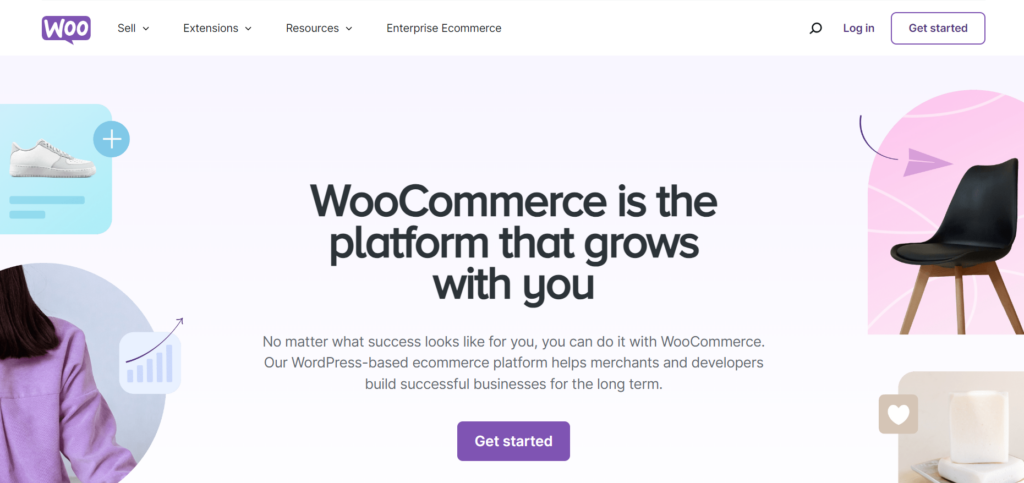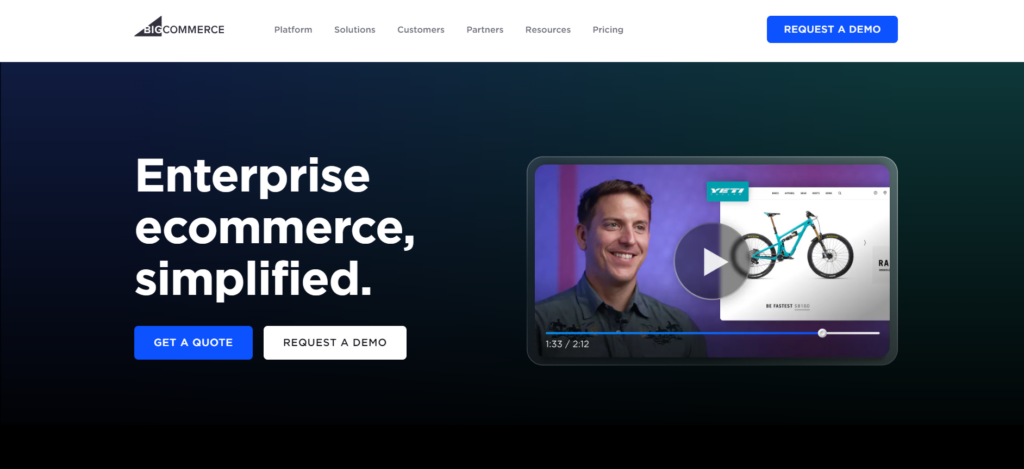In the fiercely competitive world of online retail, finding the best SEO ecommerce software can be the key to unlocking substantial growth. SEO isn’t just about getting to the top of search engine results; it’s about driving targeted traffic that converts into loyal customers. Effective SEO tools empower ecommerce businesses to enhance visibility, improve user experience, and ultimately boost sales.
This guide delves into the top-rated SEO ecommerce software available, offering insights into their unique features and benefits. Whether you’re a small startup or a large enterprise, you’ll discover the best solutions to elevate your online store’s performance and stay ahead of the competition.
- Criteria for Choosing the Best SEO Ecommerce Software
- Top-Rated SEO Ecommerce Software
- SEO Tool Integration
- Best Practices for Using SEO Ecommerce Software
- Unlock Your Ecommerce Potential with Flying V Group
- FAQs
- What is the best SEO ecommerce software for small businesses?
- How does SEO ecommerce software improve my online store’s visibility?
- Can I use multiple SEO tools in conjunction with my ecommerce platform?
- What are the key features to look for in SEO ecommerce software?
- Is technical knowledge required to use SEO ecommerce software?
Criteria for Choosing the Best SEO Ecommerce Software
Selecting the right SEO ecommerce software is crucial for your online store’s success. Here are key factors to consider:
Ease of Use
A user-friendly interface and a smooth onboarding process are essential. The software should be intuitive, allowing you to easily navigate and utilize its features without a steep learning curve.
SEO Features
Look for robust SEO capabilities, including keyword research tools, meta-tag management, customizable URL structures, and automatic sitemap generation. These features ensure your website is optimized for search engines, improving visibility and rankings.
Customization
Flexibility in design and functionality is vital. The software should allow you to tailor your store’s appearance and operations to meet your specific needs, providing a unique and engaging user experience.
Integration Capabilities
Ensure compatibility with other essential tools like Google Analytics, social media platforms, and email marketing services. Seamless integration can streamline operations and enhance your marketing efforts.
Pricing
Consider cost-effectiveness and available plans. The software should offer good value for money, with pricing options that align with your budget and business size.
Support and Resources
Reliable customer support, comprehensive educational resources, and active community forums are important. They provide assistance and help you make the most of the software’s features, ensuring you stay on top of your SEO game.
By evaluating these criteria, you can choose the best SEO ecommerce software to drive your online business forward.
Top-Rated SEO Ecommerce Software
Choosing the right SEO ecommerce software can significantly impact your online store’s success. Here, we dive into the top-rated options, highlighting their key features, pros and cons, and the types of businesses they best serve.
Shopify
Key Features
- User-friendly Interface: Shopify’s interface is intuitive and easy to navigate, making it accessible for beginners.
- Extensive App Store: Offers a vast array of apps to extend functionality, including SEO-specific tools.
- Customizable SEO Settings: Allows for adjustments to meta tags, descriptions, and product titles.
- Mobile Optimization: Automatically optimizes stores for mobile devices, ensuring a seamless shopping experience.
- Automatic XML Sitemaps: Generates sitemaps to help search engines index your pages efficiently.
- Google Analytics Integration: Easy integration with Google Analytics for tracking and analysis.
Pros and Cons
- Pros:
- Easy setup and operation.
- Robust built-in SEO tools.
- Ideal for beginners with no technical background.
- Cons:
- Limited customization of URL structures.
- Additional costs for premium apps.
Best For: Small to medium-sized businesses looking for a comprehensive, all-in-one solution that is easy to set up and manage.

WooCommerce
Key Features
- Full WordPress Integration: Seamlessly integrates with WordPress, leveraging its powerful blogging capabilities.
- Extensive Plugins: Access to a vast library of plugins for enhanced functionality.
- Highly Customizable: Offers deep customization options for those with technical expertise.
- Robust Community Support: Backed by a large community offering extensive resources and support.
Pros and Cons
- Pros:
- High flexibility and control over SEO settings.
- Large plugin library for additional features.
- Cons:
- Requires a certain level of technical knowledge.
- Potential for conflicts between plugins.
Best For: Content-heavy sites and users who are comfortable with WordPress and seek extensive customization options.

BigCommerce
Key Features
- Built-in SEO Tools: Comprehensive SEO tools are included out-of-the-box.
- Customizable URL Structure: Allows for detailed customization of URLs for better SEO.
- Fast Loading Speeds: Optimized for quick load times, enhancing user experience and SEO.
- CDN Integration: Uses Content Delivery Networks for faster global access.
- Faceted Search Support: Improves search functionality within the store.
Pros and Cons
- Pros:
- Excellent for large product catalogs.
- Scalable solution that grows with your business.
- Intuitive SEO tools that are easy to use.
- Cons:
- Less flexibility in design options.
- Higher cost for advanced features.
Best For: Mid to large-sized businesses needing a scalable solution with robust SEO capabilities.

Magento (Now Adobe Commerce)
Key Features
- Highly Customizable: Offers extensive customization options for both the frontend and backend.
- Powerful SEO Capabilities: Advanced technical SEO adjustments, including canonical tags and hreflang tags.
- Enterprise-Grade Solution: Suitable for large businesses with complex needs.
Pros and Cons
- Pros:
- High level of customization.
- Robust and powerful SEO features.
- Cons:
- Requires developer support for setup and maintenance.
- Complex to manage without technical expertise.
Best For: Large enterprises with in-house development teams seeking a highly customizable and powerful solution.
Squarespace
Key Features
- Beautiful Design Templates: Offers stunning, professionally designed templates.
- Built-in SEO Features: Includes basic SEO tools out-of-the-box.
- Easy-to-Use Interface: User-friendly platform ideal for those without technical skills.
- Integrated Blogging Platform: Combines ecommerce with robust blogging capabilities.
Pros and Cons
- Pros:
- Attractive design templates.
- Simple and straightforward SEO tools.
- Great for visually-focused brands and creatives.
- Cons:
- Limited customization options compared to other platforms.
- Not ideal for large inventories.
Best For: Small businesses and creatives focused on aesthetics and ease of use.

Choosing the best SEO ecommerce software depends on your specific needs and business size. Consider these factors carefully to select the software that best aligns with your business goals and resources.
SEO Tool Integration
Integrating the right SEO tools can significantly enhance your ecommerce store’s visibility and performance. Here are some top tools to consider:
Semrush
- Key Features: Comprehensive keyword research, in-depth site audits, and position tracking.
- Benefits: Helps identify valuable keywords, optimize your site structure, and monitor your SEO progress.
Ahrefs
- Key Features: Backlink analysis, competitor research, and content ideas.
- Benefits: Allows you to analyze your backlink profile, understand competitor strategies, and generate content that attracts traffic.
Moz Pro
- Key Features: SEO performance tracking, identifying crawler issues, and robust keyword research.
- Benefits: Tracks your site’s SEO health, resolves technical issues, and provides valuable keyword insights.
Ubersuggest
- Key Features: Free keyword ideas, site audits, and competitive analysis.
- Benefits: Offers cost-effective solutions for keyword discovery, site optimization, and competitor insights.
Helium 10
- Key Features: Amazon-specific SEO tools and listing optimization.
- Benefits: Tailored for Amazon sellers, optimizing product listings for better search visibility and sales.
Integrating these tools with your ecommerce platform can streamline your SEO efforts, improve your search rankings, and drive more organic traffic to your store.
Best Practices for Using SEO Ecommerce Software
To maximize the benefits of SEO ecommerce software, it’s essential to follow best practices. Here’s a guide to help you optimize your strategy:
Regular Audits
- Monitor Site Health: Conduct regular site audits to identify and fix issues promptly. This ensures your site remains optimized and search engine-friendly.
Keyword Optimization
- Ongoing Research: Utilize SEO tools for continuous keyword research and optimization. Target high-value keywords to improve your search rankings.
Content Marketing
- Blogging and Social Sharing: Integrate a blog into your ecommerce site and share content on social media. This attracts traffic and enhances your SEO efforts.
Technical SEO
- Ensure Site Speed and Mobile Optimization: Optimize your site for fast loading times and mobile compatibility. Proper URL structures are also crucial for SEO success.
Analytics and Reporting
- Track Performance: Use Google Analytics integration to monitor your site’s performance. Analyzing data helps refine your SEO strategy and achieve better results.
By implementing these best practices, you can effectively leverage SEO ecommerce software to boost your online store’s visibility and performance.
Unlock Your Ecommerce Potential with Flying V Group
Finding the best SEO ecommerce software is the first step. To truly maximize your online potential, partner with Flying V Group. We specialize in custom SEO strategies that drive traffic and boost conversions. With our expert insights and advanced tools, we provide:
- Tailored SEO Plans: Strategies designed specifically for your business.
- In-Depth Analytics: Data-driven refinements for maximum ROI.
- Ongoing Support: Continuous assistance to ensure sustained growth.
Elevate your ecommerce success with Flying V Group. Contact us today to achieve the visibility and performance your online store deserves.
FAQs
What is the best SEO ecommerce software for small businesses?
The best SEO ecommerce software for small businesses often includes Shopify and Squarespace due to their user-friendly interfaces, robust SEO tools, and cost-effective plans. Both platforms offer easy setup and management, making them ideal for small business owners without technical expertise.
How does SEO ecommerce software improve my online store’s visibility?
SEO ecommerce software enhances visibility by optimizing key aspects of your website, such as meta tags, URL structures, sitemaps, and mobile optimization. These tools help search engines better understand and rank your site, leading to increased organic traffic and higher search engine rankings.
Can I use multiple SEO tools in conjunction with my ecommerce platform?
Yes, most ecommerce platforms like Shopify, WooCommerce, and BigCommerce integrate seamlessly with various SEO tools such as SEMRush, Ahrefs, Moz Pro, and Ubersuggest. These integrations allow you to conduct in-depth keyword research, site audits, and performance tracking to improve your SEO strategy.
What are the key features to look for in SEO ecommerce software?
Key features to look for include ease of use, customizable SEO settings, integration capabilities with other tools, comprehensive analytics and reporting, and strong customer support. These features ensure you can effectively optimize your store for search engines and enhance your overall online presence.
Is technical knowledge required to use SEO ecommerce software?
While some platforms like WooCommerce and Magento may require technical knowledge for advanced customization and management, many others like Shopify and Squarespace are designed to be user-friendly with minimal technical expertise needed. Choosing the right platform depends on your comfort level with technology and the specific needs of your business.






0 Comments